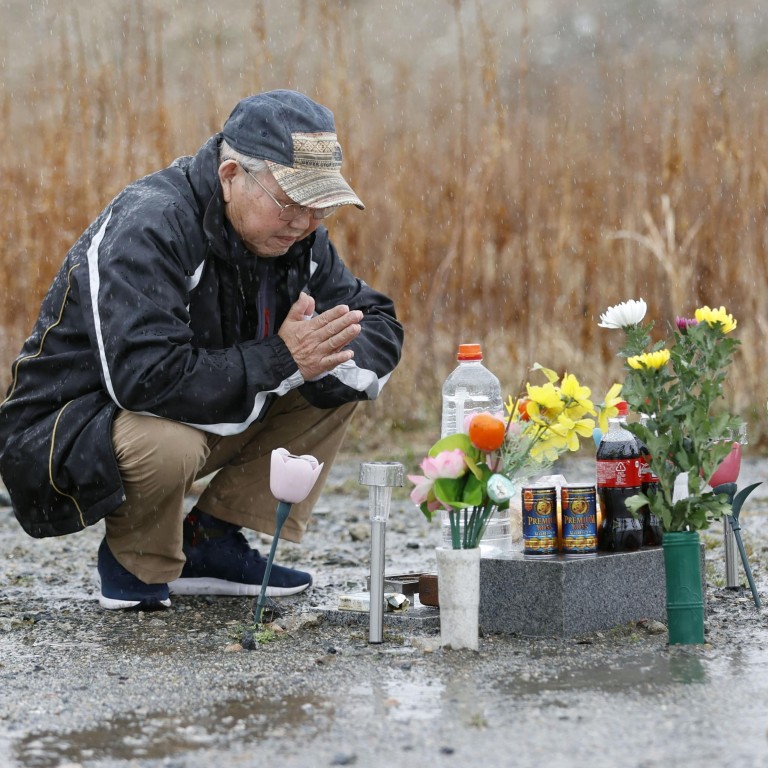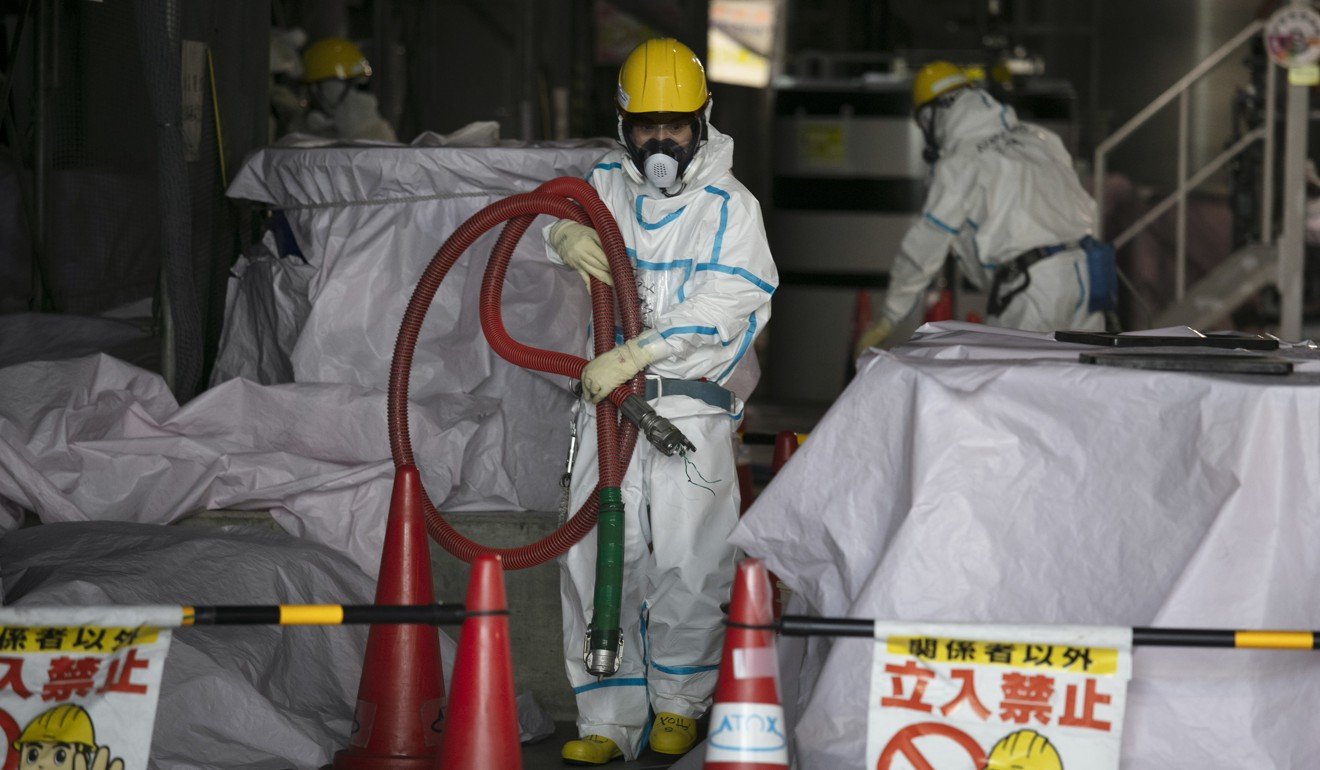
Japan scales back remembrance on 9-year anniversary of triple disaster amid coronavirus fears
- More than 15,000 people died in 2011’s powerful earthquake and resulting tsunami, which also caused the nation’s worst nuclear accident
- Annual memorial ceremonies have been cancelled as Prime Minister Shinzo Abe requested large gatherings be called off to prevent the virus’ spread

Many municipalities in the hardest-hit prefectures of Fukushima, Iwate and Miyagi have cancelled or postponed their ceremonies but will still set up altars where people can lay flowers, while others drastically downsized their events.
The twin natural disasters left some 18,400 people dead or missing and triggered a triple meltdown at the Fukushima Daiichi Nuclear Power Station, 150 miles northeast of Tokyo.

The emergency prompted hundreds of thousands of residents to flee the region while the plant released radioactive material into the environment.
Japan’s Reconstruction Agency, established to oversee rebuilding efforts, said about 47,700 people are still unable to return home due to radiation contamination in areas near the facilities. But evacuees and activists have said the number is much larger.
Last week, Abe’s government lifted its evacuation order over a small part of Futaba Town, which co-hosts the nuclear plant with Okuma Town.
The torch relay is expected to begin at J-Village, a football training centre about 12 miles south of the plant, on March 26.
Last week, the government approved a bill that will extend the life of the Reconstruction Agency until 2031 – a decade longer than initially planned.

But doubts have been cast on whether Japan can stick to its time frame for dismantling the crippled nuclear power plant, operated by Tokyo Electric Power Company Holdings.
In December, the government decided to delay the removal of spent fuel from two of the plant’s reactors by as much as five years to March 2029.
Additional reporting by Associated Press

